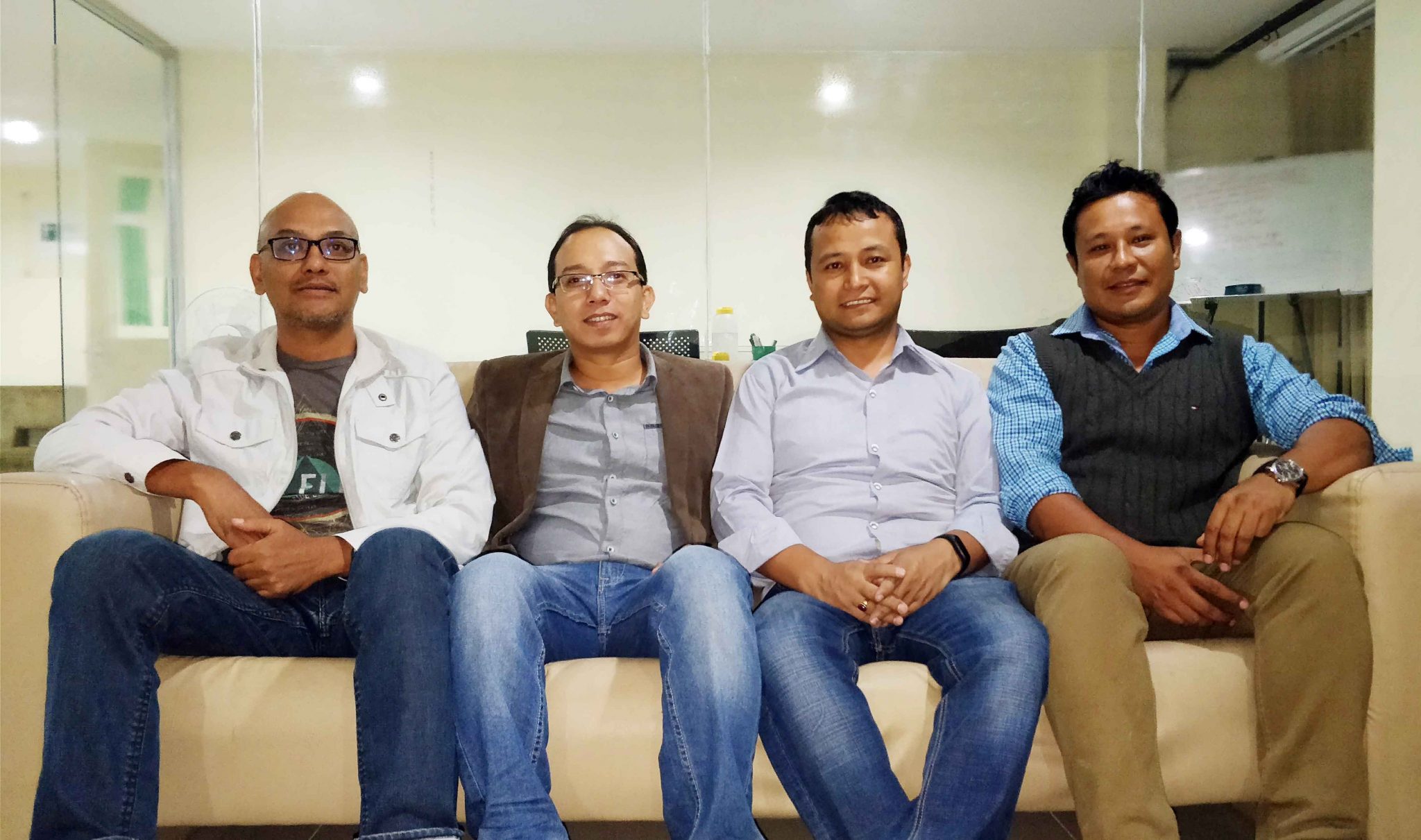Db2Map, a Nepali tech startup recently won a prestigious $ 100,000 worth Data Driven Farming Prize, a worldwide competition organized by United States Government’s Feed the Future Initiative.
But, the journey the company went through will surely awestruck all.
After the Gorkha earthquake, a group of four friends working in various development agencies: Rajan Man Bajracharya, Hari Krishna Dhonju, Bikash Dangol, and Suraj Shrestha developed a data-management tool to make an assessment on what can be done voluntarily in the aftermath of the disaster. Db2Map was simply born as a data infrastructure to promote data sharing and consumption.
The tool helped Nepal Society for Earthquake Technology (NSET) in the impact assessment of the quake.
Db2Map turns complex data into interactive maps that even laymen can understand easily.
“Earlier, map making used to be a complicated job, and limited to cartographers only. Db2Map was started just to make an interactive/engaging map out of a raw data. Db2Map has simplified the work. Anyone who knows MS Excel can make an interactive map,” shared Bajracharya in a conversation to Glocal Khabar.
The project that started as a voluntary work has evolved and grown to such a wonderful company that we can’t even imagine now.
As the volume of data grew, the group wanted to systematize the work.
They first started to focus on agriculture, as it’s the occupation providing employment to the highest number of people in Nepal, and substantially contributing to Nepal’s economy, and launched GeoKrishi in February 2017.
GeoKrishi is mainly useful two categories of users. First, extension workers, farmer representatives, and farmers who are seeking for information to improve options of crops at farm level e.g. ‘Where, which agro-product, when and how’. Next, scientific users and researchers e.g. NARC scientists, or I/NGOs. The real beneficiaries of ‘GeoKrishi’ are farmers.
GeoKrishi recently partnered with Helvetas to calculate fertilizer input. They made fertilizer calculator in coordination with a UK-based scientist. It’ll calculate what amount of NPK (Nitrogen, Phosphorus and Potassium) to put which type of plants to get optimum output, and how to carry out crop rotation.
The team has tested GeoKrishi in three different geographical settings: mountain (Jumla district), hilly (Surkhet) and terai (Bardiya) region. Nepal Government’s High Value Agriculture Project (HVAP) also collaborated for the project.
The group recently won the $100,000 prize for their innovative solutions in utilizing information and communications technology to improve agricultural productivity.
“After GeoKrishi grows to become a knowledge bank, we’ll open agriculture advisory service center at a national level. Then we’ll start to provide private services,” Bajracharya shares.
Using GeoKrishi, HVAP has built interactive maps of various places of Surkhet district. It helps to clearly represent and find where a particular crop can be cultivated best. Road network, settlement location can be overlaid on the map so as to know if a particular place can be developed as a pocket zone for a certain crop so that processing unit, collection centers, and other infrastructure setups can be made.
After one year, GeoKrishi is all set to replicate the model to other districts of Nepal from Surkhet district. In a long run, the team wants to scale up the work beyond Nepal.
Starting something that none others dared to pursue previously is not a small feat. The team too had to go through many such instances. But, they didn’t stop and proceeded further.
The future
The group is about to establish Agriculture Advisory Service Center at a national level in the duration of next 3-5 years. “We’ll develop information for five development phases of farming: planning, plantation, growing, harvest, and selling in the market, ultimately making the process more systematic and helping to farm smarter,” shares Bajracharya.
But, we are not limited to GeoKrishi only. We are registering a non-profit organization that specializes on data. For the same, we have teamed up with experts who really want to pursue this vision, and are starting Digital Data Co-Lab (collaborative lab) soon. – Bajracharya
To the emerging entrepreneurs
Startup scene is booming in Nepal and environment is becoming favorable for a startup to grow and succeed. Many wonderful startups are coming with a variety of innovative ideas.
But, before starting anything, you need to be sure about your idea if it really works in the local context. You can’t simply copy paste ideas implemented in other countries. You need to localize any idea and work to solve the real-world problems. You need to know about the execution of idea.
You need to properly analyze the need gap in the market, and only then try to fill that void. It can go a long way only if you can come up with an idea to fulfill the gap.
Likewise, many startups in Nepal also haven’t been able to graduate from the ideation phase. You should not only look at the local market but think in a global perspective. If we don’t look at the global level market, we can’t bring scalability. If scaling up part is missing, it’ll start to die.
Startups for a better Nepal!
Presentation: Basanta Kumar Dhakal







